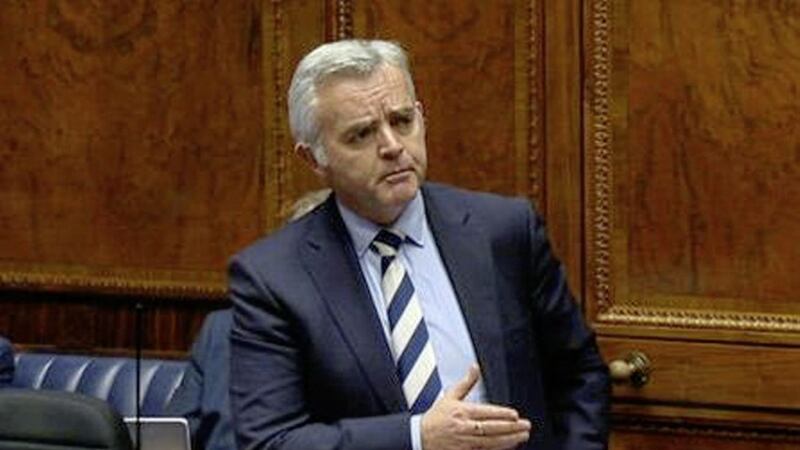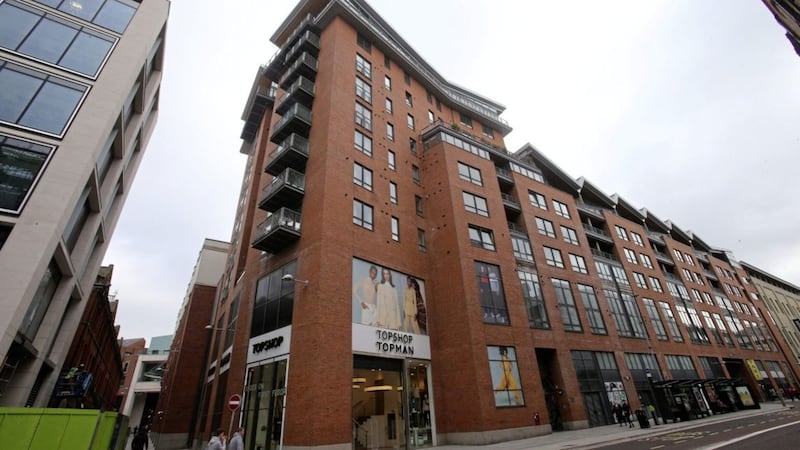THE DUP moved quickly last night to dismiss allegations from former minister Jonathan Bell that senior party staff sought to block curbs to the Renewable Heat Incentive (RHI) because of "extensive interests in the poultry industry".
The incendiary claim came as the assembly debated proposals by economy minister Simon Hamilton to cut the cost of the green energy scheme over the next year, which is said to cost Stormont £85,000 a day.
Mr Hamilton launched the last-ditch bid to control pay-outs hours before Sinn Féin's failure to nominate a deputy first minister to replace Martin McGuinness signalled the collapse of the devolved institutions.
As MLAs discussed the merits of the proposals, which had been discussed by Stormont's economy committee earlier in the day, Mr Bell claimed he was prevented from curbing costs while minister at the Department of Enterprise, Trade and Investment (Deti).
The Strangford representative, who succeeded Arlene Foster at Deti, has been suspended from the DUP since giving a television interview last month in which he claimed special advisers blocked his plans to end the RHI's generous subsidies in 2015 - allegations that have been denied.
Speaking in the assembly under privilege yesterday, he said: "The very first piece of information given to me in a ministerial office, by DUP party officer appointed special adviser Timothy Cairns, was that you will not be allowed to reduce the tariff on this scheme because Timothy Johnston, special adviser to the then first minister, and John Robinson, at that time director of communications to the DUP and now the special adviser to the economy minister, had such extensive interests in the poultry industry.
"'Minister, this is not being allowed on your agenda'."
Mr Bell also claimed that an instruction was sent out by DUP special advisers to stop him from being called to give evidence to the Public Accounts Committee about the scheme.
However, the DUP responded by branding Mr Bell's claims "outrageous, untrue and unfounded".
"Following unsubstantiated allegations made by Jonathan Bell in the assembly chamber under the cover of privilege, we wish to point out that:
"1. Timothy Johnston has no interests whatsoever in the poultry industry and does not benefit or have any family members who applied to or benefit from RHI.
"2. John Robinson has no personal interest in the poultry industry. His family home farm have chicken houses but are not part of the RHI scheme and never have been recipients or applicants.
"These are outrageous, untrue and unfounded allegations are nothing short of mud-slinging."
Mr Hamilton's draft plan is to cut RHI costs for one year, introducing tariff tiering and a payment cap similar to the scheme that operates in Britain, before a longer-term solution can be agreed.
He accepted it was not 'zero cost', as had been claimed ahead of Martin McGuinness's resignation last week.
"It is significantly lower than the £30 million cost that there would be, it is a significant reduction on that," the minister said.
However, he again faced calls to publish details of those in receipt of RHI payments.
Finance minister Mairtin O'Muilleoir said concerns had been raised about some claimants "milking and scamming this system".
"The lack of honesty in dealing with the public has been disrespectful and shameful," he said.
Ulster Unionist Steve Aiken claimed that Mr Hamilton's department did not publish a list of beneficiaries on Friday after the threat of injunction.
The debate was scheduled to carry on until late last night, but voting was postponed for seven days following a proposal by UUP leader Mike Nesbitt.
He said the assembly's examiner of statutory rules had yet to scrutinise Mr Hamilton's plan and that the economy committee had "yet to take a definitive position". He also noted that there was no business case accompanying the proposals.







